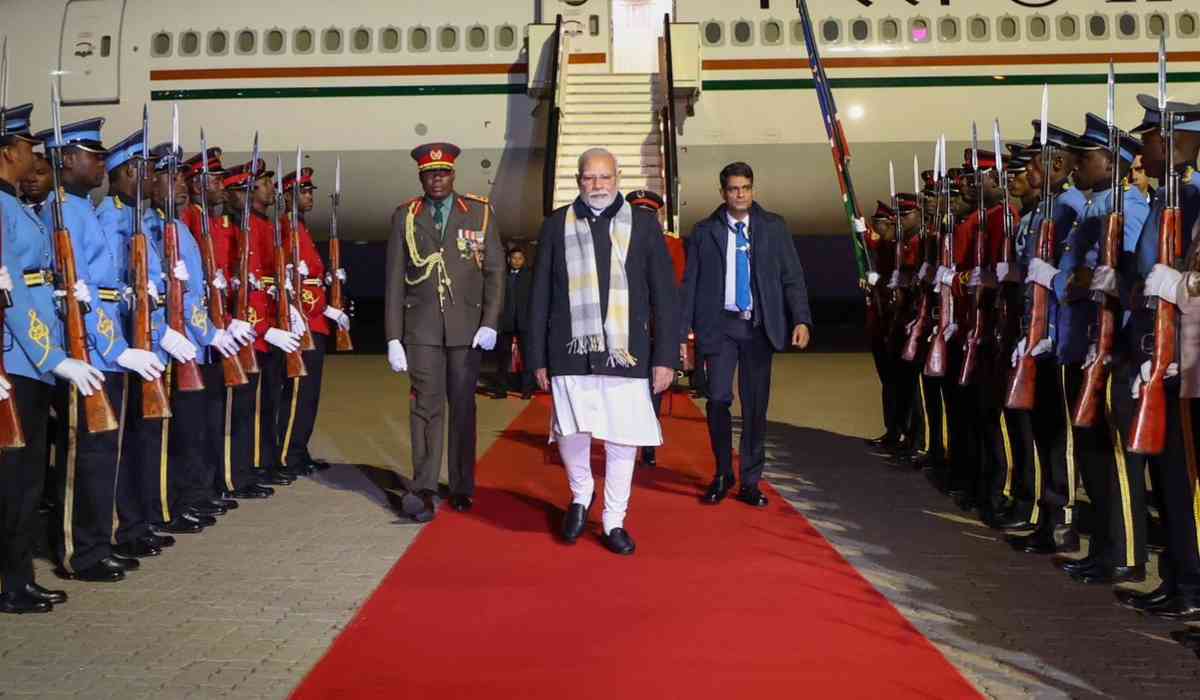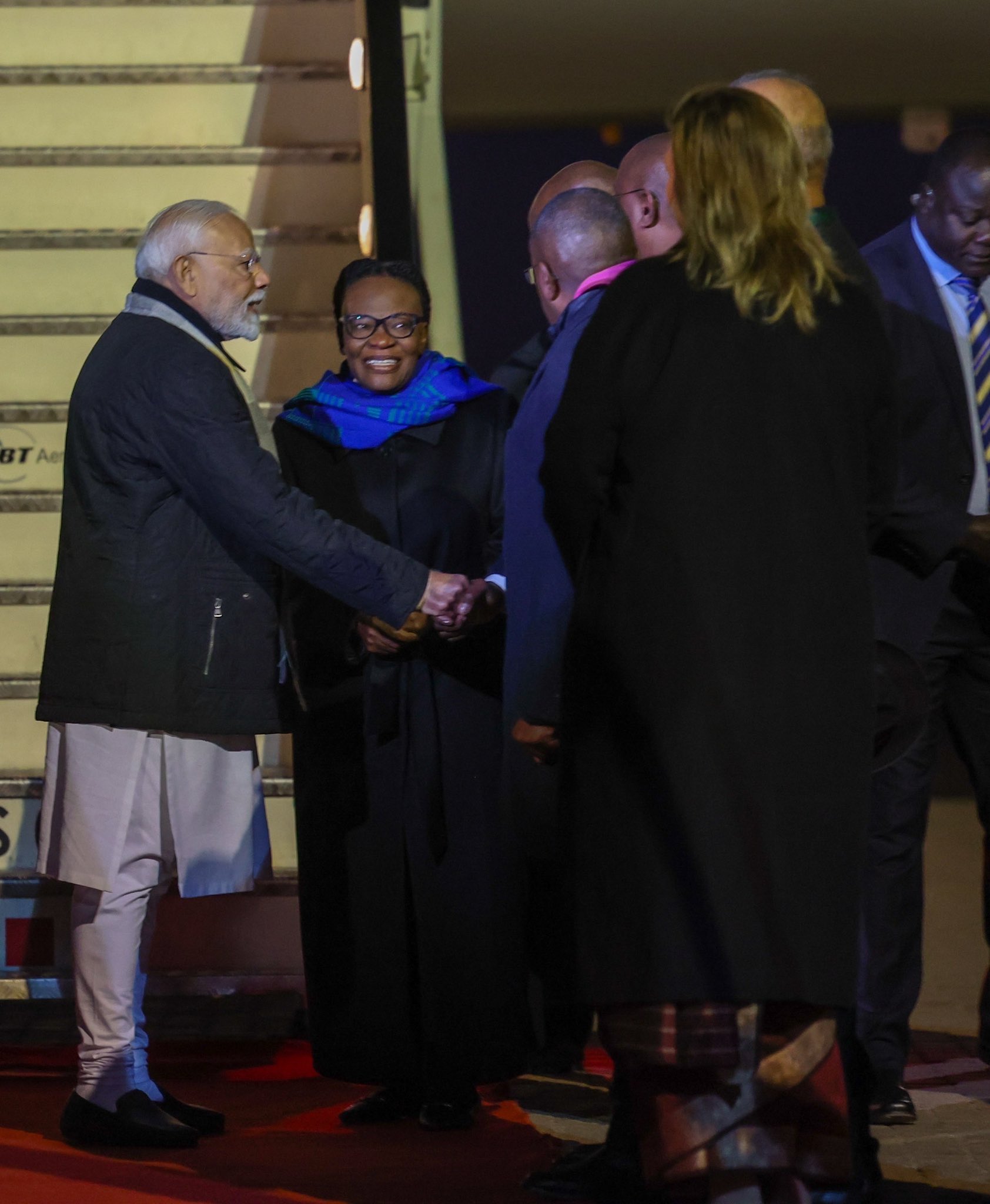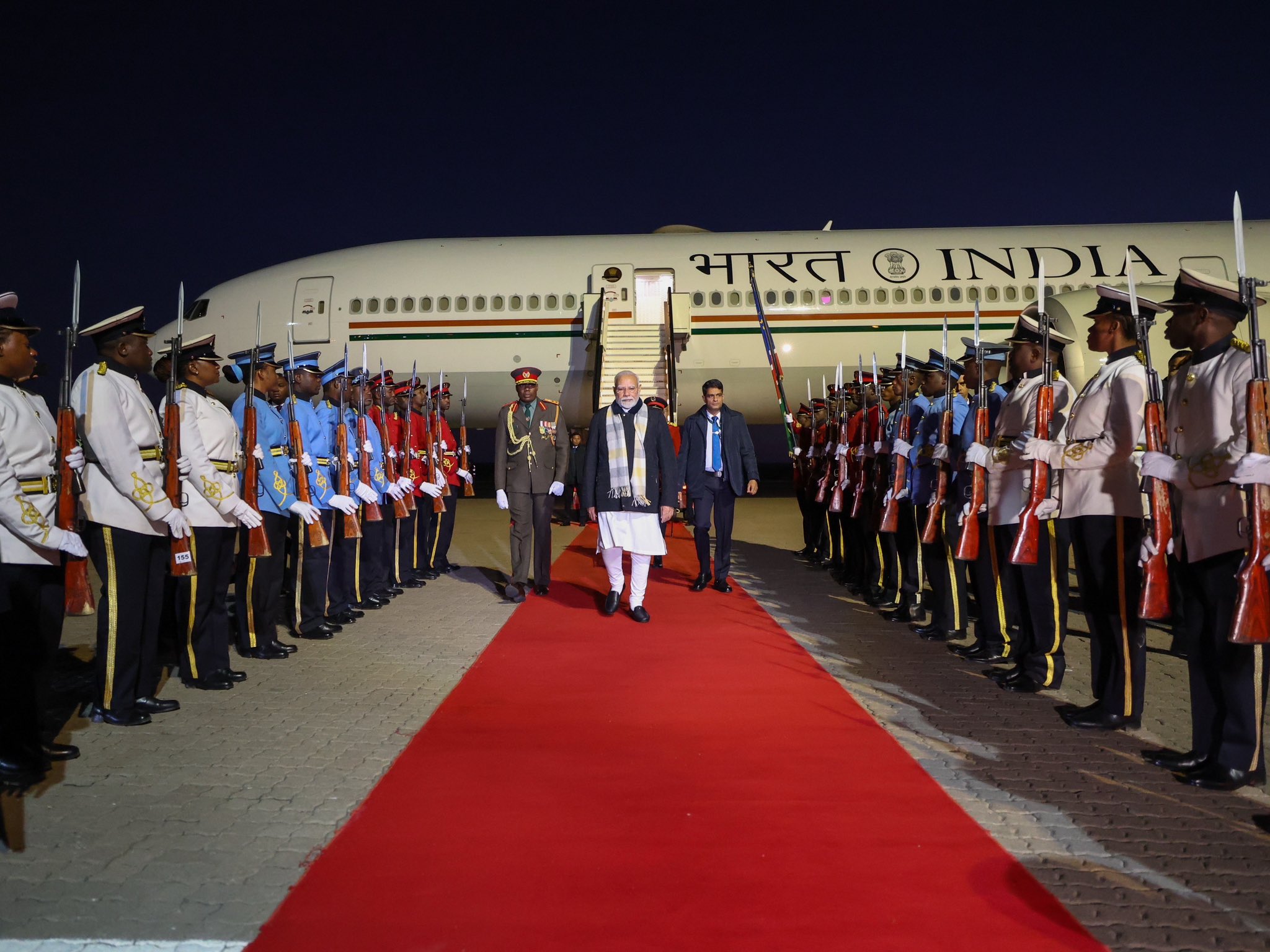Prime Minister Narendra Modi’s eight-day, five-nation tour—covering Ghana, Trinidad & Tobago, Argentina, Brazil (for BRICS), and finally Namibia—has concluded with a ceremonial visit to Africa’s southwestern nation. This tour, hailed as one of India’s most ambitious diplomatic outreach efforts, offered a blend of cultural exchange, strategic announcements, and economic goals. Yet, critics are asking: Did it deliver real, measurable benefits?

Goals of the Tour
-
Strengthening South‑South Ties
Modi’s visit reinforced India’s outreach to the Global South. He emphasized cooperation in trade, development, health, and digital infrastructure—especially in Africa and Latin America. -
Resource Security and Clean Energy
Securing access to critical minerals like uranium, cobalt, lithium, and rare earths—essential for India’s green energy and tech ambitions—was a key pillar, particularly in Namibia. -
Digital Diplomacy
Promoting India’s UPI digital payments and other digital public infrastructure formed a core agenda in both Namibia and Ghana . -
Cultural and Historical Bonds
Gestures included Modi playing traditional Namibian drums and being welcomed ceremonially—highlighting India’s long-standing support for Namibia during its independence struggle. -
Defence and Vaccine Diplomacy
Talks in earlier stops covered vaccines (like Ghana), agricultural innovation, defence collaboration, and vaccines, for example the vaccine hub proposal in Ghana.
What Was Achieved?
| Announcement / Focus Area | Summary |
|---|---|
| UPI Expansion in Namibia | India is working to introduce its Unified Payments Interface to Namibia, helping the country’s digital finance revolution . |
| Mineral Tie‑Ups | Talks opened on sourcing uranium, cobalt, lithium, diamonds, copper, and rare earths from Namibia, boosting India’s strategic reserves . |
| Economic Investments | Over $800m in Indian investments in Namibia already exist, with 2023–24 trade at ~$650–814m. Agreements may deepen this trade . |
| Symbolic Diplomacy | Modi’s visit was the first by an Indian Prime Minister in nearly 30 years. He addressed Namibia’s Parliament and paid respects to its founding leaders . |
What People Are Wondering
Despite the optimistic headlines, some voices are more cautious:
-
Are there binding deals? While announcements about UPI, minerals, and projects were made, few binding contracts or MoUs have been publicly disclosed.
-
Speed of implementation matters. Observers note that promises are easy—execution will be key.
-
How deep are the benefits? This tour is part of a broader strategy: digital payments, defence tie-ups, vaccine hubs. Yet critics ask whether this is substance or symbolism.
A geopolitical expert noted:
“Unlike extractive models, India’s diplomacy emphasizes mutual respect and technology sharing,” but “how far this translates into real investment on the ground remains to be seen” .
A Kid-Friendly Perspective
Imagine five friends—Ghana, Trinidad & Tobago, Argentina, Brazil, and Namibia—invite you over. You talk, share ideas, promise help with homework (health, digital money), offer to swap toys (minerals, tech), and make group pacts. That’s great! But later, everyone watches: Did you really tutor them? Did the toy swap happen? It’s wonderful to be invited—and the promises sound amazing—but the real test is doing your part.
The Big Picture
-
Strategic Vision: India is showing it wants to be a trusted partner, especially among Global South nations, not just a buyer.
-
Diversifying Global Ties: By building friendships beyond traditional Western alliances, India boosts its global influence and voice in groups like BRICS and the African Union .
-
Long Walk Ahead: Transitioning from announcements to action—building digital systems, signing contracts, setting up mining units—will take months or years.
-
Public Expectations: Citizens and analysts are waiting for tangible signs—money in budgets, digital systems up and running, crops and commerce flowing.
Final Thoughts
PM Modi’s five‑nation tour has ended on a high note, with bold promises—from cultural bridges to energy security and digital finance. It paints a story of a confident India reaching out to partners around the world. But as with any big journey, the real challenge begins now: turning those handshakes into happening.
Only time will tell if this tour helps build new schools, powers digital wallets, and secures minerals—or remains a diplomatic highlight with limited real-world impact. For now, the promise is laid down; the proof will be in the next few years of follow-through.
With inputs from agencies
Image Source: Multiple agencies
© Copyright 2025. All Rights Reserved Powered by Vygr Media.



























